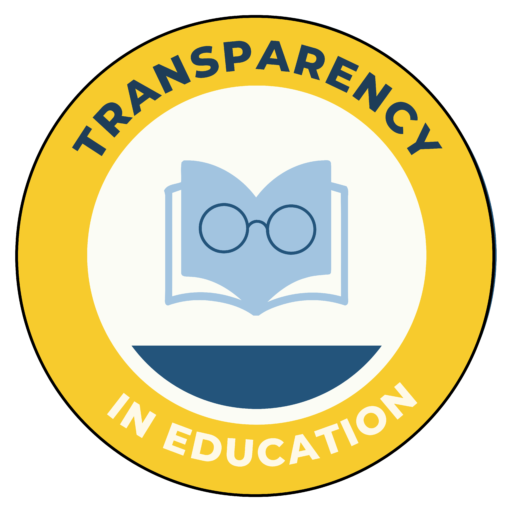Committee Activity and What Parents Need To Know
August 10, 2022
Unfortunately there is no consolidated parental notification policy where parents can go to see a list of all the FCPS actions that would generate a notice to parents and/or require a parent’s consent. Obviously such a policy would make it easier for parents to keep track of and manage what their child is experiencing in school. It is a suggested step the BOE should take to improve transparency and trust between the BOE and the community and we will make a recommendation to do this.
In the meantime we are providing a list of the policies and regulations that cover what parents need to be notified of and, in some cases, approve. It was derived by a review of the existing policies and although we believe it is a complete list we will ask the FCPS to verify that we have captured them all.
The bottom line: Given what we’ve observed these policies and regs. are not tight enough and it is strongly advised that parents speak with their child’s teacher to obtain a complete understanding of what materials, speakers, and topics are part of their classroom experience.
The use of audio-visual materials: Regulation 400-51. Last updated 2011.
Definition of AV materials: films, videos, broadcast programs, podcasts, online streaming, and user generated materials (i.e., home recorded materials).
The regulation also states “This definition does not include curriculum materials selected under applicable guidelines in family life, health, and science.” It follows a definition of the term “sexually explicit” so it’s assumed that this is in place to a low broader discretion in the family life, health and science curriculums when dealing with sexually explicit information. We will clarify.
From the regulation it appears that only films rated by the Motion Picture Association of America are covered by parental notification/approval*.
Within this procedure it appears the teacher can use edited materials from these films at the teacher’s discretion (procedures C & D in the regulation).
The procedures in this regulation imply that the use of all other AV materials as define above can be used at the discretion of the teacher (procedures A & B in the regulation). The procedures ask teachers to consider the age and maturity of the students and, if any material contains violent behavior, offensive language, profanity, or substance abuse, that it only be shown to “age-appropriate audiences.”
*For films parental permission is needed for PG films in elementary school (no use of PG-13 and R allowed), PG/PG-13 in Middle school (R not allowed), and R films in High school.
Guest Speakers: Regulation 300-12, Policy 432. Last Updated 2021
Guest speakers in classrooms and schools do not require parental notification or approval. Approval is needed from the school principal (speakers requested by FCPS) or “building level administrators” (externally generated requests from FCPS partner organizations to speak), or the “Public Affairs Department and the relevant Director and Curriculum Specialist” external, Non-FCPS organizations or individuals.
The Teaching of Controversial Issues/use of Historical Artifacts:” Regulation 500-40 (related policies 308, 432, 516, and 500). Last updated 2021.
Definition of a controversial topic: “A point or matter about which there exists significant opposing viewpoints and/or multiple perspectives.” To be controversial under Policy 516 it must have “political, economic, or social significance and is presented within appropriate curricular guidelines.”
Approval for introducing controversial topics is school-based. Principals, along with curriculum staff, are responsible for developing procedures for approving controversial issues.
Teachers are expected to not share their own views (Compliance procedure C). In a separate policy (300) it states teachers have an “obligation to present fairly all sides of issues.” As much sense as this makes this approach is not sacrosanct: Fairfax County Virginia removed this requirement from their policies, freeing up teachers to take sides or present only one side.
There is no provision in this regulation for parent approval unless governed by the AV and guest speaker regulations/policies, meaning a teacher can present an approved controversial topic without notice to the parent for discussion if no AV materials or guest speakers are used. This underscores the importance of talking with teachers and your children regularly to stay in touch with what they are exposed to.
Oversight by the schools: There is no provision for monitoring or oversight by the schools relative to controversial issues, which again emphasizes the importance of talking with teachers and students.
Student Surveys Regulation 400-67; Last updated 2006. (This regulation is out of date and needs to be updated to cover all surveys or questionnaires used by any teacher, school, or the FCPS regardless of purpose.)
Regulation definition:
Parents and eligible students must consent before students are required to submit a survey that concerns political beliefs, psychological, sexual behavior, illegal or ant-social behavior, religious practices income, legal privileges guarded by professional confidentiality, and critical appraisals.
Parents must receive notice of any other protected information survey, non-emergency physical exams, and activities gathering or disclosing personal information from students for marketing or distribution to others.
Upon request, parents may inspect, before use, surveys, instruments used to collect personal information from students for marketing, sales or distribution, and instructional materials used for educational curriculums.
Related Information regarding Parental Notification:
Textbook approval: There is no approval process on textbooks or supplemental periodicals (Regulation 500-2) at this time however parents do have an opportunity to review the materials and provide feed back/comment before use. This policy is under revision and we will post an update the week of September 5th.

